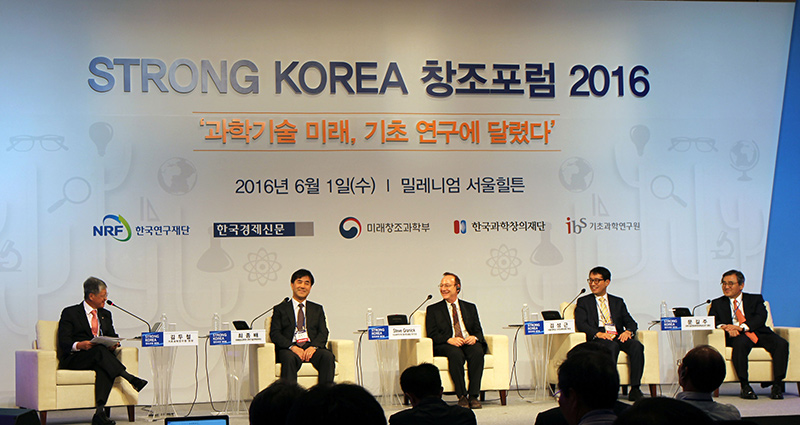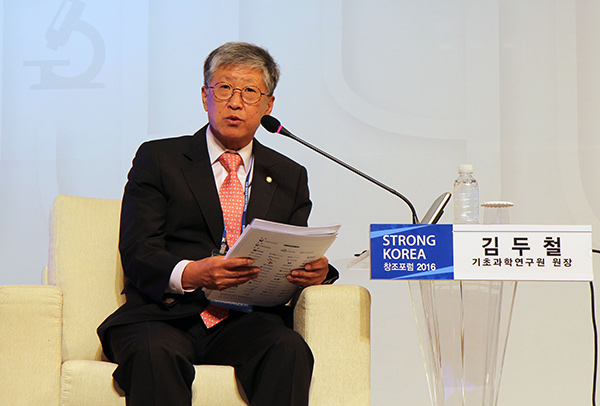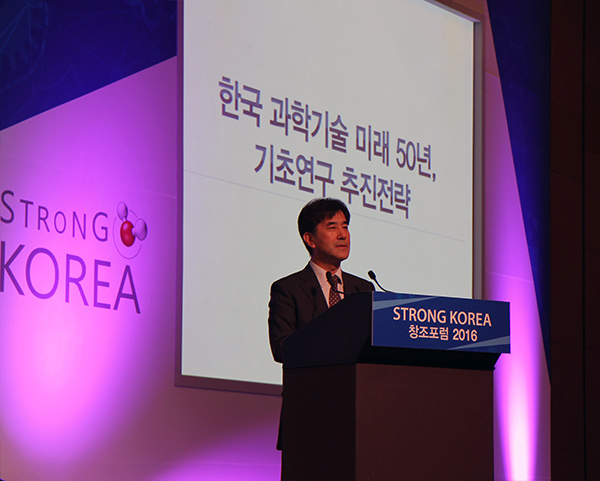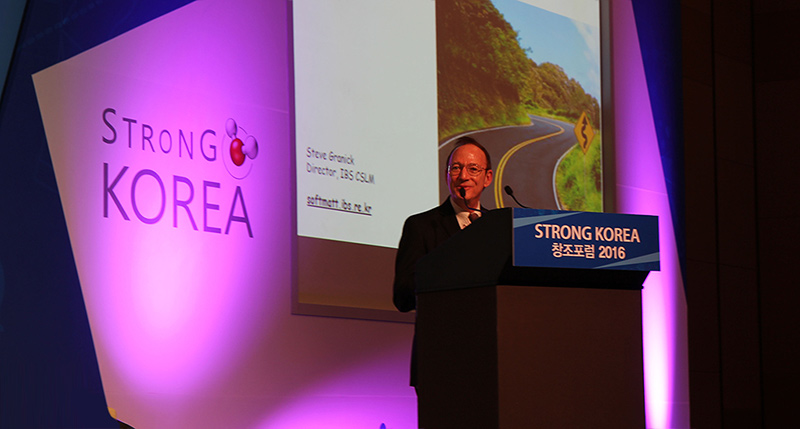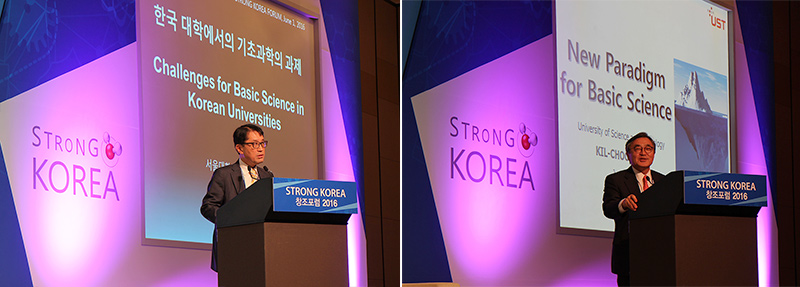주메뉴
- About IBS 연구원소개
-
Research Centers
연구단소개
- Research Outcomes
- Mathematics
- Physics
- Center for Theoretical Physics of the Universe(Particle Theory and Cosmology Group)
- Center for Theoretical Physics of the Universe(Cosmology, Gravity and Astroparticle Physics Group)
- Center for Exotic Nuclear Studies
- Center for Artificial Low Dimensional Electronic Systems
- Center for Underground Physics
- Center for Axion and Precision Physics Research
- Center for Theoretical Physics of Complex Systems
- Center for Quantum Nanoscience
- Center for Van der Waals Quantum Solids
- Chemistry
- Life Sciences
- Earth Science
- Interdisciplinary
- Institutes
- Korea Virus Research Institute
- News Center 뉴스 센터
- Career 인재초빙
- Living in Korea IBS School-UST
- IBS School 윤리경영


주메뉴
- About IBS
-
Research Centers
- Research Outcomes
- Mathematics
- Physics
- Center for Theoretical Physics of the Universe(Particle Theory and Cosmology Group)
- Center for Theoretical Physics of the Universe(Cosmology, Gravity and Astroparticle Physics Group)
- Center for Exotic Nuclear Studies
- Center for Artificial Low Dimensional Electronic Systems
- Center for Underground Physics
- Center for Axion and Precision Physics Research
- Center for Theoretical Physics of Complex Systems
- Center for Quantum Nanoscience
- Center for Van der Waals Quantum Solids
- Chemistry
- Life Sciences
- Earth Science
- Interdisciplinary
- Institutes
- Korea Virus Research Institute
- News Center
- Career
- Living in Korea
- IBS School
News Center
| Title | STRONG KOREA Creation Forum 2016 | ||||
|---|---|---|---|---|---|
| Name | Department of Communications | Registration Date | 2016-06-22 | Hits | 3631 |
| att. |
 thumb.jpg
thumb.jpg
|
||||
STRONG KOREA Creation Forum 2016"Future of scientific technology, to be determined by basic research" On June 1st, the Korean Economic Daily and the Ministry of Science, ICT and Future Planning co-hosted the 'Strong Korea Creative Forum 2016' at the Millennium Hilton hotel in Seoul. As part of an on-going nationwide campaign launched by the Korean Economic Daily in 2002 to pose Korea as a top technological power, this forum ultimately aimed at increasing Korea's national competitiveness by nurturing talented individuals in the fields of natural sciences and engineering as well as advancing scientific technology. As 2016 marks the fourth year of the 'Creative Economy', an emphasis on the future of scientific technology, to be determined by basic research was adopted to intensively discuss basic science and R&D innovation, and policy directions and challenges in nurturing creative talents.
This forum started with an opening ceremony at 9:00am and lasted until 3:30 in the afternoon. The Institute for Basic Science (IBS) led a special session titled, "Basic Science and Korea's Future." IBS President KIM Doo-Chul presided over the session and welcomed the good opportunity to discuss research directions and paradigms in the basic science scene. He encouraged participation in the discussion even though the issues in question were rather serious and heavy. There were topic presentations and discussions with speakers including CHOI Jong-bae, head of the Science and Technology Strategy Office of the Ministry of Science, ICT and Future Planning, Steve Granick, IBS director of the Center for Soft and Living Matter, KIM Seong Keun, the dean of the Department of Natural Science at Seoul National University, and MOON Kil Choo, the president of University of Science and Technology (UST). Formulating strategies to seek basic research aligned with greater creativity
Choi Jong-bae, head of the Science and Technology Strategy Office of the Ministry of Science, ICT and Future Planning began the session with his presentation titled "Strategies to Seek Basic Research for the Coming 50 Years of Korea's Scientific Technology", by introducing the history of national scientific technology development and major achievements for a span of more than 50 years starting from 1961. Mr. Choi said it is undeniable that scientific technology has contributed to Korea's growth. South Korea led the world in the rate of R&D investment as a percentage of GDP at 4.29% in 2014. In an effort to make use of its rich and excellent human resources, it has increased its R&D spending. After continuing gradual increases, the percentage invested in basic research rose to 39.0% of the total government spending in research in 2016 with a total invested amount of KRW 5.2 trillion. From his point of view, the government's policy on scientific technology can be defined as an "R&D of Fast Chasers". Mr. Choi stressed the government's will to transform the paradigm appropriate for an age characterized by infinite competition in the global stage. The resulting document "R&D Innovation Measures" included changes in the R&D ecosystem centered on producing outcomes rather than winning projects and an addition of strategic elements in the government investments to innovate the R&D system. Mr. Choi explained such strategies as the ones to provide more R&D opportunities to nurture creativity and to create a research environment friendly to new researchers. Mr. Choi introduced other strategies for basic research: Equal research opportunities for all researchers willing to conduct studies (more investments in grass root projects of basic research, granting additional amount to build equipment for outstanding researchers);continual discovery of creative ideas through bottom-up methods (minimizing the government's unnecessary interference, allowing failures originated from good intention and a sincere attitude to be accepted for the purpose of encouraging dare efforts in research, shift to qualitative evaluation); stable and long-term support to help promising sprouts bear fruits (stronger support for focused research faithful to the initial subjects, introduction of a grant suitable for Korea's research surroundings, helping to form basic research networks centered on IBS). Korea having an intense interest in the research fields of basic scienceSteve Granick, the director of IBS Center for Soft and Living Matter, gave a presentation, entitled 'Trends in global basic science and Ways Forward for Korean Science." His presentation included data cited from the World Bank indicating a steady growth of Korea's scientific technology. He spoke highly of Korea's unique development between its neighboring China and Japan. Director Granick said less than two years have passed since he came to Korea, introducing the question he has been often asked: "Why did you resign your professorship in the U.S., which has no retirement age, to join IBS in Korea?" His answer was summarized into Korea' strong points in research on basic science. "Korea is really a great place to do basic science given the dwindling interest in basic science, which pervades many countries of the world. Even local governments in Korea are allocating quite a large budget to technology investments. Such attitude is hard to expect in the U.S, and European nations." He was aware that the Nobel Prize draws keen interest from Koreans and added, "Nobel Prizes went to 11 laureates in 2015 and some of them were recognized for long-standing research, not for the immediate results of recent work. The United States dominates when it comes to Nobel Prize winners whose number stands at more than three hundreds. As the Nobel Foundation employs the definition of nationality as citizenship at the time of award, approximately 100 researchers born outside the U.S. are included." After he delivered the significance of steady investment and international cooperation in the basic science field, he gave a vital warning about the tendency of only supporting popular fields, adding that the Nobel Prize is awarded to pioneers, not to followers. He stressed the importance of excellence and originality in evaluating research, "Aside from the popularity of research fields, we should be more concerned with how much effort researchers are putting into their studies and how creative they are."
The Center for Soft and Living Matter led by Director Granick is located at the Ulsan National Institute of Science and Technology (UNIST), where he teaches students to be creators and to follow those with the best ideas. He gave credit to IBS for inducing students to establish themselves in Korea even though the capabilities of these students are sufficient to seek professional career overseas, along with the efforts to bring in renowned scholars from foreign countries. Lastly, director Granick commented on the importance of basic research, emphasizing that it can shed light on the unknown and uncertain things. For example, it is shown that we can run simulations of the future by looking into the past. "If I lived in an age without cars, I would say 'what I want is a faster horse,' because cars were inconceivable as transportation. However, we finally saw the inventions of cars coinciding with the disappearance of horse-drawn carriages. Please think over these examples. Probably, most of the current useful technologies may seem strange and hard to imagine and found only in a science fiction film. Applied science is something like 'making a faster horse', but basic science can take one step further to create an entirely new thing like automobiles." Improvements in universities are requiredDean Kim Seong Keun of the Natural Sciences College at Seoul National University gave a presentation entitled "Challenges for Basic Science in Korean Universities." At the opening, he said there is a lot to improve in Korean universities regarding basic science settings, adding "The species most adaptable to change is the one that survives, and this principle should be extended to universities." He raised several questions regarding the role of universities, like can universities produce sufficiently high quality human resources? can laboratories generate new technologies? can universities provide sufficiently solid basis for new technologies? can Korea build a global presence as a serious player in basic science? , and added that all of these questions are important and interconnected. Dean Kim also expressed his view on the state of basic science within Korean universities. His opined the symptoms of Korea's ailment and divided them into quantitative problems such as a national obsession with the number of publications, journal impact factors, and the number of citations. He also spoke about ignorance and how it's exemplified by irresponsible media coverage of the often unsubstantiated claims found in scientific articles. Additionally, he did not forget to lambast the ignorance of the scientists themselves. In his opinion, excessive interest, interference and control by the press, the government, and the misguided general public originated from their ignorance. Dean Kim suggested remedies for these challenges. "Creativity-oriented" teaching is required in the classroom so that inspiration rather than instruction may prevail. Dean Kim also laid great emphasis on changes to the academic system in universities. The current academic disciplinary structure has run into difficulties in following the research trend, therefore much greater diversity and flexibility should be embraced in the reorganization. Lastly, he urged a reorientation of research grants towards ensuring support for scientists engaging in grass roots research.
Moon Kil-Choo, president of the University of Science and Technology (UST), was the last presenter in the special session. His session entitled "New paradigm for Basic Science" began by president Moon displaying a dramatic image of an iceberg, a metaphor for basic science. What we usually see is just the tip of the iceberg, and basic science is its hidden vast volume lying underwater. President Moon went on to make the comparison of scientific technology development between the U.S. and Korea beginning in the 1900s and continuing to this day. Korea's scientific technology field did not show any impressive record of achievement to speak of while the U.S. brought all sorts of technological advances to the world including the invention of the airplane and the moon expeditions which furthered our knowledge about the creation of the earth. His presentation came down to the significance of originality; despite the launch of so-called 'Creative Economy' in 2013, Korean originality, in his opinion, was questioned. He referenced the current technology and offered that it is more of a byproduct of convergence technology rather than a wholly new one. Then what technology should be developed for the future? President Moon's emphasis was placed on imagination, because basic science in the future calls for "true research" a radical departure from "following science" or "me-too-science." His suggestions for such a picture in the future included increasing research variety, long term investment, and more autonomy. As the global economy continues to grow at just a 3~4%, president Moon's solution for further development is only through scientific technology. In addition, he hasn't lost hope for the progress of the Korean economy because Korea's growth rate is on par with other advanced nations. After completion of all presentations, IBS President Kim wrapped up the session, expressing satisfaction for bringing diverse issues centering on basic science to the table during the day's forum. Last but not least, he reminded the audience of the challenges remaining and of how to apply the suggestions provided throughout the day to find a beneficial solution, which he thought was the most important thing. |
|||||
| before | |
|---|---|
| before |
- Content Manager
- Public Relations Team : Suh, William Insang 042-878-8137
- Last Update 2023-11-28 14:20










